

8 startups share how they maintain a fantastic work culture
Buying better chairs, making fancy interiors and offering free meals is easy. Building an internal work culture is hard to define and cultivate. Here’s how these startups are doing it right.
Company culture is so hyped that it has become a mere buzzword. But culture is what inspires
your team members to come to work, and work really hard. Culture is what differentiates you
from your competitors who’re selling the same product. Similar to the extra petrol in the tank,
it helps you survive in the bad times and flourish in good times.
Building such a culture is insanely difficult. But doable. It doesn’t require you to spend a
fortune. Infact, these 8 startups with the best work culture have their own DIY hacks. Let’s learn
from those who’ve done it right.
#1. A strong foundation of common values the whole team believes in.
AdPushup is known for their transparency and openness in sharing their culture. Their articles about the cost of building an awesome office, arranging an epic low budget Christmas party and participating in an offline marketing event speak volumes about their great work culture.
According to Ankit Oberoi, the cofounder, every great culture is built on the strong foundation of common values the whole team believes in. The four strong foundations of their culture are autonomy, transparency, mastery and purpose. It might be easy to understand what motivates and empowers the team – the difficult part is to maintain such values in the organization.
They try their best to only hire people who really believe in these values - there is no other way to do it better since people can't really unlearn and change their core beliefs. The hardest decision is - letting go of smart people, if they are cultural misfits.
“Building a great culture is a constant effort, where the founders need to be actively involved.”
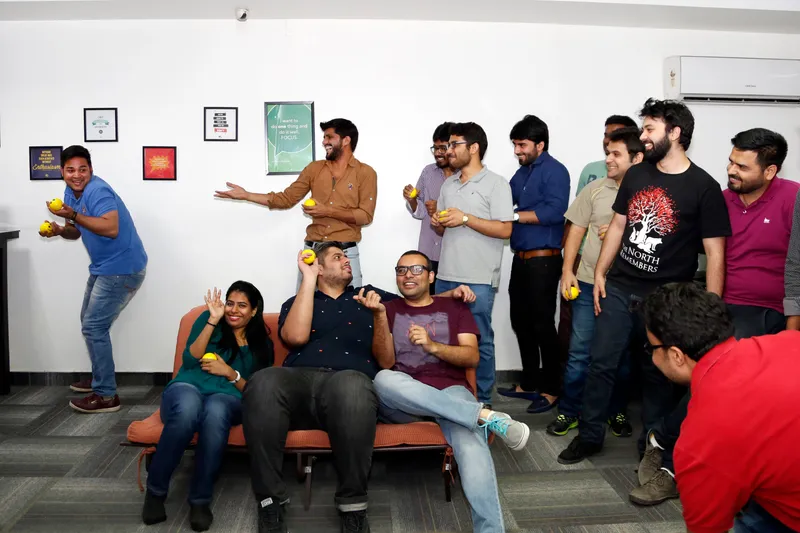
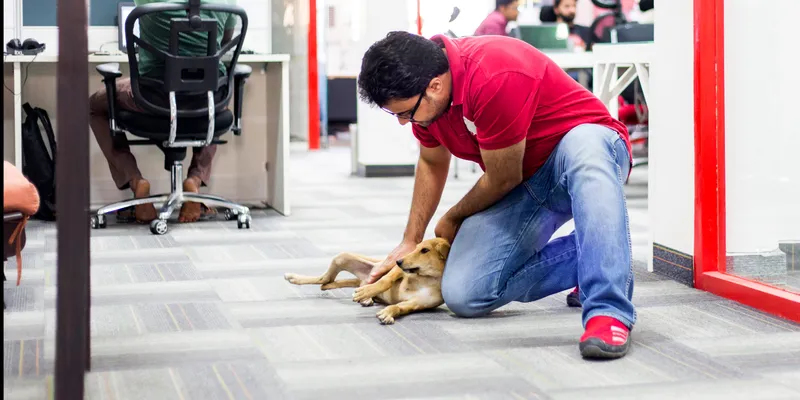
#2. Build a work culture that focuses on smartness, hard work, passion and discipline.
The work culture at Crowdfire focusses on smartness, hard work, passion and discipline. Smart people need ownership and challenges to do their best work. After taking inspiration from Spotify’s work culture, they introduced the Tribes & Squads culture in their product development process, which drastically increased productivity. Every tribe comprises a small self-sufficient team where everyone has a higher stake in the product feature they’re building.
On the first Monday of every month, they have - OneMonday - to discuss every Tribe’s progress and their plans for the month. It ensures that there’s transparency within the company, and that everyone is on the same page and aligned to a common goal.
Says Priyanka Sharma, the community manager at Crowdfire, “our HR team gets in touch with anyone who’s about to join us, and shares trivia about the office, welcome ceremony, and their team members. Not only does this break the ice, but it also shows the to-be Firestarter that we really look forward to working with them. On their first day at the HQ - whether it’s an experienced Product Manager or a fresher - they feel like they’re already a part of this tribe that we call Crowdfire!”
They provide breakfast, lunch and dinner, pick-and-drop facility from and to the nearest station for the team. The plan is to reduce all the unnecessary decision making and hassles that stand between the Firestarters and their best productive self!”
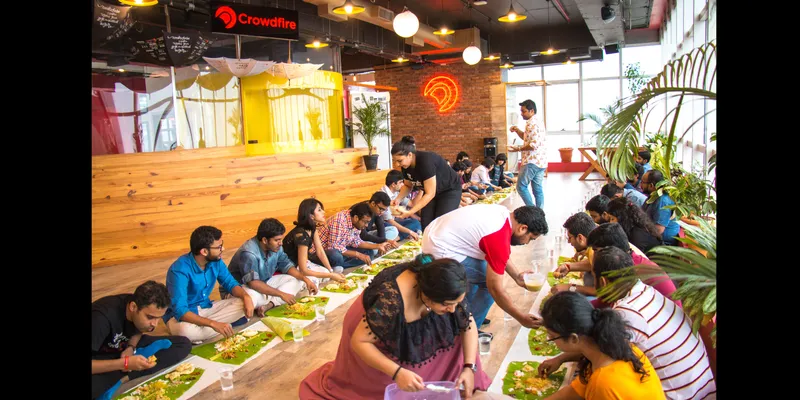
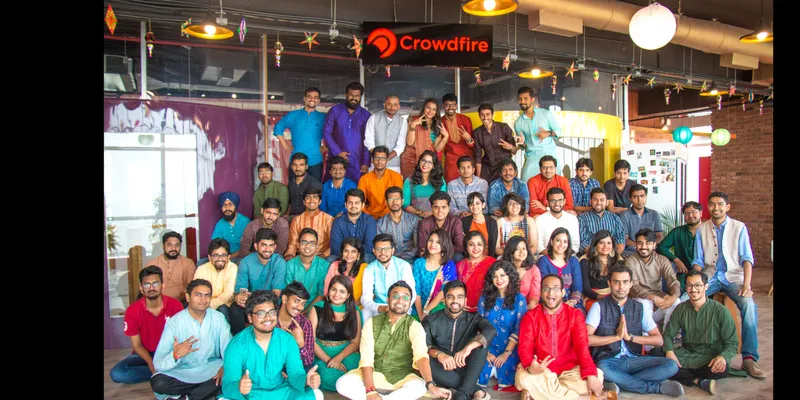
#3. Children inherit habits from their parents; and team members from the founders.
Humans are headed, resources are managed, believe the cofounders at Engineerbabu. Here’s how they’re setting the right work culture:
• No designated chairs: To diminish hierarchy, there are no designated chairs. This creates an equitable work environment.
• Hire but don't fire: "You don’t hire for skills, you hire for attitude. You can always teach skills.” - Herb Kelleher. They believe in on-boarding, nurturing and developing people.
• Hire from small colleges: Praise the humility and see the desire to grow in a candidate, which is fulfilled by the students of normal institutes.
• Not having any policies: People know their responsibilities they manage their work accordingly.
In cofounder Mayank Pratap’s words “build a culture of trust, care and loyalty. Corporates are known for policies and startups for their culture.”
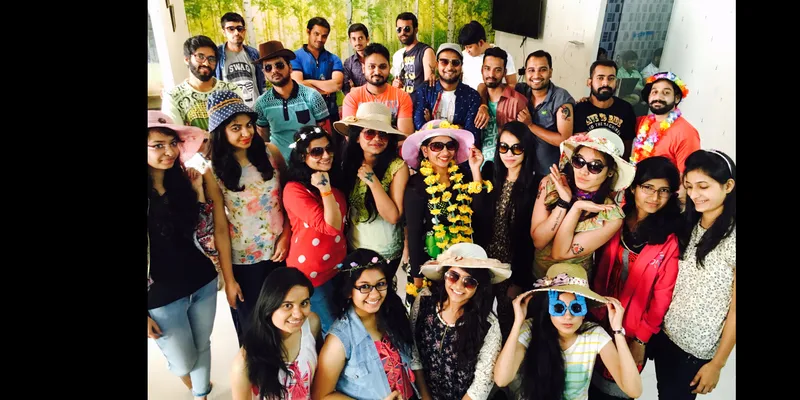
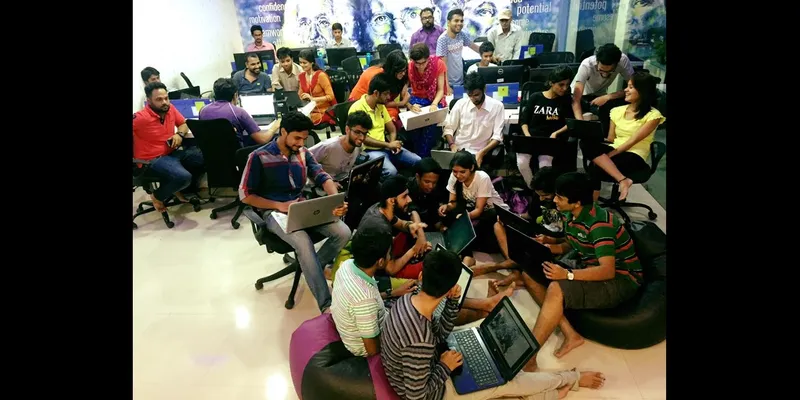
#4. Create a work environment that not only engages employees but also challenges them on a daily basis.
Better known as ‘ixigems’, they work in PODs where they completely own a product for ixigo.
In these PODs everyone involved with a particular function sits together to take full ownership of the product. So clearly the content writer would know what product features are being launched and a tech person would know what growth hacks are being implemented. Such transparency helps in bringing about a sense of attachment towards one’s own product. They believe in giving all ixigems their own "Startup within a startup”.
With monthly hackathons, the entire team comes together to help in crossing the milestones. In their recent Bugbash, everyone from tech to ops got together for 12 hours to kill all the bugs in their products. This is where product barriers are broken and everyone comes together as one big organization.
External speakers are invited in regular ixijams, to address the team on any topic they like. ixigems too can speak to the team on any topic they wish or are passionate about, such as photography ,10 things they don't teach at business school , time management or even simply conduct a Pranayam session.
The “Office Gong” placed at the middle of the office is ringed to let everyone know of every new milestones achieved. Happiness is all about sharing!
Says Kanchi Chawla, AVP - HR, ixigo.com, “be it the dance floor or cricket ground, together ixigems know exactly how to have the time of their lives! There is never a dull day at ixigo. :)”


#5. A collaborative and problem solving attitude.
Partition-free open workplaces, breakout zones, table tennis and football tables and bunk beds make the work culture at OYO friendly and dynamic. Adds Dinesh R, their chief HR “a familiar sight to see leaders chatting with their employees across teams as the level of collaboration is extremely high.”
Innovation is coded into the OYO DNA and they always look for problem solvers with an entrepreneurial streak. The drive and conviction to make things happen is extremely important when it comes to working in a hyper-competitive environment of startups. Vibrant and informal environment along with clear and transparent communications make them one among the best startup workplaces.
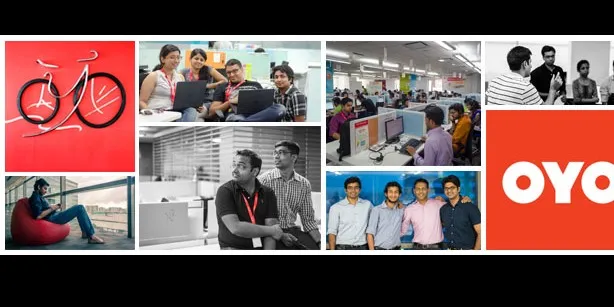
#6. Fast learning.
One of the best things at LogiNext is the 50:50 men to women ration, rarely observed in tech startups. As the fastest growing Asian SaaS company, innovation is their DNA. Constant learning and a sense of urgency in every task are an integral aspect at Loginext.
Says cofounder Manisha Raisinghania “We keep investing in talent encouragement and development within our team. Internal and external interactive sessions are conducted by industry leaders and personality development and public speaking workshops. We’ve had fast-track events such as a 24 hour ‘Techkathon’ which threw up many disruptive product features. To put it simply, the term that suits our work culture the best, is ‘fast learning’. Our team learns more in three months than other companies would in a year.”
Self-growth is an important aspect that constantly motivates the team. Team members are encouraged to acquire new skills.
The bronze “Gong” is stuck when a milestone is achieved. “It is when you hear the loud sound of the ‘Gong” that you have all your aspirations and ambitions reinstated with a renewed focus towards excellence."
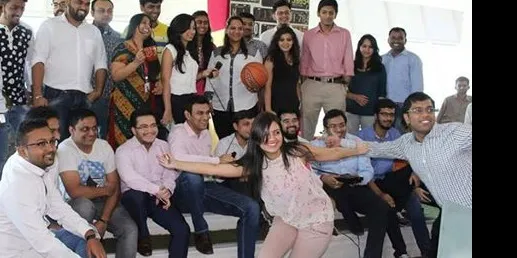

#7. Transparent and open communication channels.
The founders at Razorpay believe in nurturing strong and self-driven teams through cohesive team values and an open culture. Transparent communication channels, ensuring that ownership is coupled with the freedom to make choices and creating a workspace where people are not only driven to work, but also fuel personal interests and aspirations are the core principles.
Communication lies at the heart of the Razorpay culture. Transparent and open communication channels are a great way to ensure that everyone is on the same page, with little scope for information distortion.
Open Slack channels and Gmail groups are used for most of the internal and external communications because anyone can contribute to anything when they know what’s going on.
Harshil Mathur, the cofounder adds “Slack open channels have brought the entire team together in unexpected ways - in addition to work, we now have groups for quizzers, gamers, readers, runners and every other conceivable interest area. Engendering this attitude has been one of our biggest milestones as an organization; a solid foundation for individuals and the organization to grow in tandem."


#8. Work smarter.
Life at Vidooly means working in a company where people are watching YouTube/Facebook videos and discussing about the latest Netflix original while cooling their heels over a pint of beer on a weekend. Sounds like a dream right?
With a swanky office in Noida, the team builds world-class tech products not just because they're told to; but because they want to! From a coder to the accounts guy, the Product DNA can be seen pulsating in each and every one. Every member of the team thrives in a casual yet goal oriented setup where self-improvement is at the core of the culture.
Says cofounder Subrat Kar “we encourage everyone to work smarter rather than harder through flexible work hours and fluid and accommodating business processes. The close-knit unit not only works together like an army but also parties and dreams together like a family".

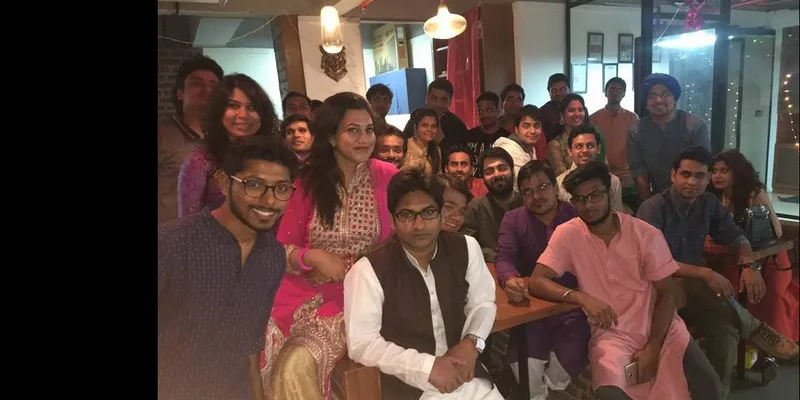
An important part of company culture is how the employees are treated and the level of trust and ownership they are entrusted with. The best companies make their employees feel safe and welcome.
We’d love to know your company culture.
The article is co-authored by Priyanka Desai and Dipendra Jain.
About Dipendra Jain: Dipendra is the CEO of LiteLabs, Singapore. He has had multiple successful products under his belt. A software veteran of 12 years with broad expertise ranging in product management to coding. Worked in most of the best tech companies in delivering world class products in various roles.






